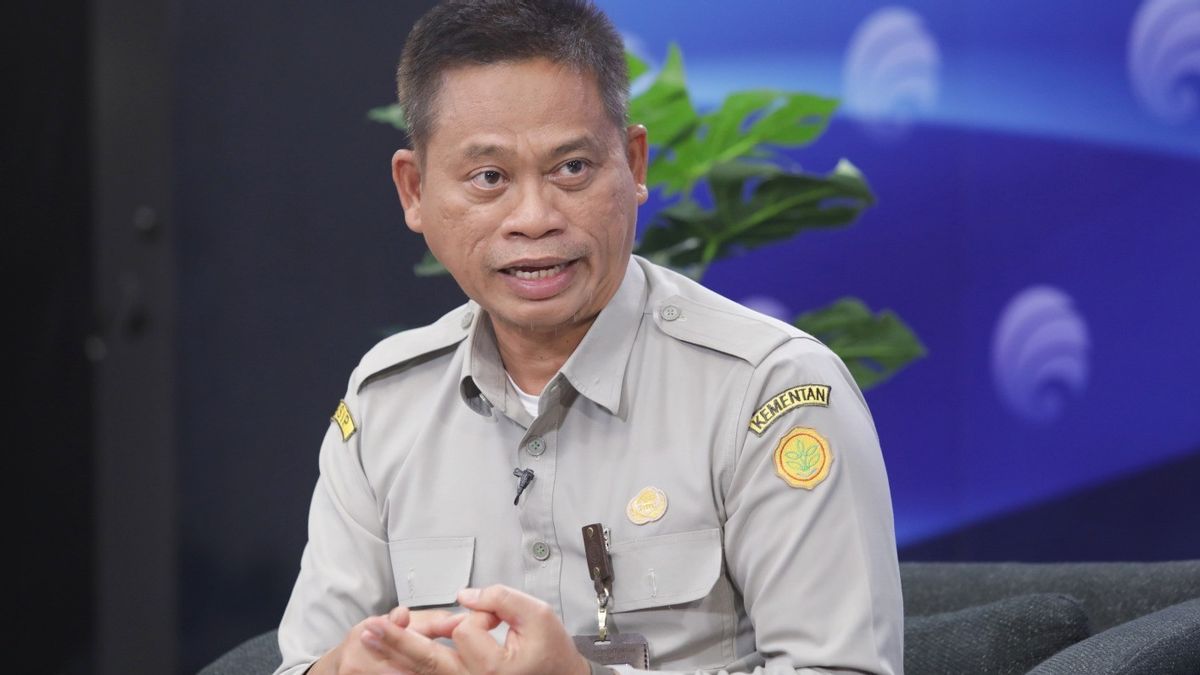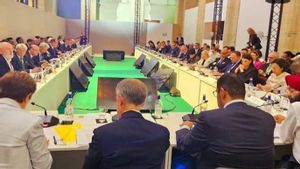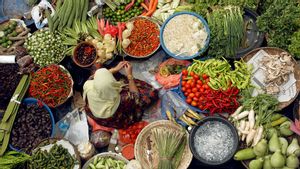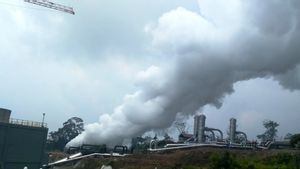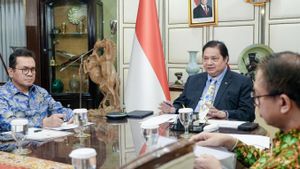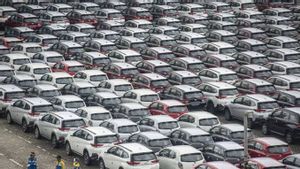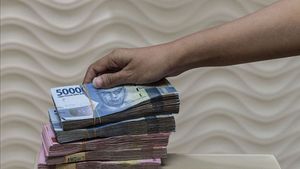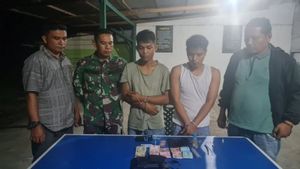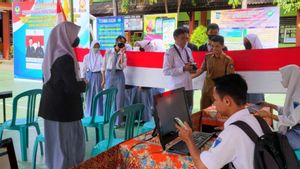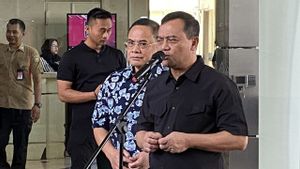JAKARTA - Indonesia is currently facing major challenges related to national food security due to global climate change, including the impact of El Nino and the dry season. The government through the Ministry of Agriculture responded to this challenge by encouraging technology-based agricultural modernization and downstreaming to increase agricultural products.
"The use of modern technology not only increases efficiency but also allows farmers with limited land to produce products with high economic value," said Head of the Ministry of Agriculture's Standardization Agency (BSIP), Prof. Fadjry Djufri in the dialogue of the 9th Merdeka Barat Forum (FMB9) with the theme Food Security in Millennial Farmers', Monday 24 June.
The Ministry of Agriculture itself has committed to leaving the old pattern identical to the dirty farmers and replacing it through the use of technology. With technology, today's farmers do not need to touch the ground directly. This is in line with President Joko Widodo's directives to encourage the use of technology in various sectors.
One example of agricultural modernization is the use of modern planting tools and hydroponic systems. Millennial farmers, with limited land, are able to produce hundreds of millions of rupiah by utilizing this technology. The Ministry also involves millennial farmers and students in an effort to increase food emergency production and control. This shows that the Ministry of Agriculture is not only focused on technology, but also pays attention to aspects of human resources.
Fadjri said young farmers with wider insight and better understanding of technology are expected to make a significant contribution to Indonesia's agricultural modernization.
"The Ministry of Agriculture encourages the use of technology so that agriculture can be more efficient and productive. For example, with the application of the Internet of Things (IoT) and hydroponic systems that can be controlled remotely using Android devices, farmers no longer need to be dirty in the farming process," he explained.
He said the Ministry of Agriculture together with stakeholders remains optimistic about achieving food self-sufficiency, despite the challenges of climate change and El Nino's impact being a real threat in sight. Therefore, according to him, modernizing agriculture with a touch of millennials is the key to realizing the future of advanced and sustainable Indonesian agriculture.
In addition to efforts to increase food production through technology, the Ministry of Agriculture also focuses on increasing exports of agricultural commodities. The application of international standards and certification is an important step to ensure that Indonesian agricultural products can compete in the global market.
"We want to standardize Indonesian agricultural products so that they can go international. Why our products have not penetrated internationally because they have not been standardized," he said.
SEE ALSO:
In addition, the Ministry of Agriculture also regularly provides assistance to farmers in each region. Not only in the form of financial assistance but also technical training, including in terms of marketing.
There is a lot of assistance, depending on the needs, because each region needs different. Technical and even marketing training. There is a farm business credit, the value varies, IDR 50 million to billions. Many millennial farmers are accessing it," he said.
With the spirit of collaboration, innovation, and the use of technology, food independence is no longer an impossible target. Through all of this, Indonesia can realize a more advanced, resilient, and sustainable future of Indonesian agriculture.
The English, Chinese, Japanese, Arabic, and French versions are automatically generated by the AI. So there may still be inaccuracies in translating, please always see Indonesian as our main language. (system supported by DigitalSiber.id)
